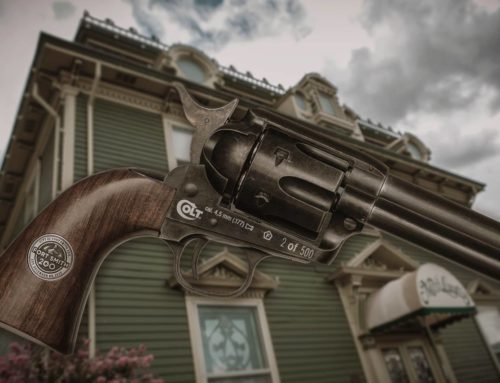In Arkansas we call petitions to expunge “petitions to seal,” but I’m going to use the terms interchangeably.
Defendants may file petitions for misdemeanor expungements to seal records where the result was guilty, not guilty, or dropped charges. Even if you were found not guilty or the charges were dropped a court record still exists. That record shows you were charged with a crime.
After you read this, give our Arkansas criminal defense attorneys a call at 479-782-1125 so they can help you clear your history!
There are a plethora of expungement statutes in Arkansas from the past and present. For misdemeanor convictions you may apply under A.C.A. §16-90-1405 OR the statute that was in place at the time of your conviction. I’ve personally never encountered a reason to use any other statute as the basis for a misdemeanor expungement. However, I wouldn’t rule out some other obscure older statute potentially being “better” if for some reason you don’t qualify under this one.
There is NO LIMIT to how many misdemeanors you may expunge under §16-90-1405. Theoretically, you could be arrested and convicted of the same misdemeanor a thousand times and you could still tell the court you’ve changed and want your record sealed.
If you have a felony conviction, check out my other blog post: How to Seal a Felony Conviction in Arkansas.
First, we have to determine whether or not you qualify for a misdemeanor expungement.
Most misdemeanors are immediately eligible for expungement after the completion of the punishment or sentence (prior to 2019 there was a 60 day wait time). A sentence is complete after you are released from jail, the end of your probation, when you’ve paid off all the fines/costs/restitution, paid to reinstate your license if it was suspended, etc. If the judge denies your petition to seal, then you have to wait 90 days before you file another petition.
Some misdemeanors take 5 years before they are eligible to be expunged, those are:
- Negligent Homicide,
- Battery in the Third Degree,
- Indecent Exposure,
- Public Sexual Indecency,
- Sexual Assault in the Fourth Degree,
- Domestic Battery in the Third Degree, and
- Driving While Intoxicated (but not Driving Under the Influence!).
If a judge denies your petition to expunge one of these “5 year” misdemeanors, then you have to wait one year before applying to seal them again.
You will NOT be eligible to seal or expunge a misdemeanor traffic violation if you had a commercial driver’s license (CDL) at the time of your ticket, or if at the time you file the expungement you have picked up ANOTHER misdemeanor charge that is the exact same type of violation you are trying to seal.
Secondly, you will need to know some of the basic information regarding your case, if you don’t know this information an attorney should be able to easily find this information for you:
- The court you were charged in,
- your case number,
- date of your arrest or citation/ticket,
- the date you pled guilty, no contest, or were found guilty or not guilty,
- the date the charges were dropped or dismissed,
- the name and statute code of the charge or charges you were arrested for,
- the name and statute code of the offense or offenses you were convicted of (if you were convicted), and
- your arrest tracking number (if you were booked into jail).
Next, you will have to swear under oath that:
- You are rehabilitated,
- You are not registered as a sex offender under the Arkansas statutes,
- and you have to declare if you have any pending charges or not.
The law was amended in 2019 to where you do not have to pay any filing fees (it used to be a $50 filing fee to the court that has jurisdiction over your original charges). Typically this would be the district court, but if you appealed your case to circuit court you will have to file there.
Some judges also want you to get background check from the sheriff’s department and the city police. Others want a clearance letter from the circuit court or district court if you ever appealed to circuit court. This clearance letter would notate any pending charges against you and a list of prior convictions. Judges have even requested a letter from the DMV that shows your history of traffic tickets. Honestly, I’m not sure of the legality of these hoops some judges make you jump through. In most cases it is just cheaper and easier to do as they ask and not rock the boat. Most people don’t have thousands of dollars to appeal the decisions of lower court judges. My gut tells me that because the burden is on the prosecution to prove you do not deserve an expungement, then all you should have to do is show up.
Once you write up a petition to seal that includes all of the information outlined in this blog and signed it under oath in front of a notary public, then you have to give a copy to the court and every other government agency involved.
You will have to certify that you sent a copy of everything you filed in court to the prosecutor’s office that prosecuted your original case. The city prosecutor and judicial district or “county” prosecutor are not the same entity. The arresting agency also needs a copy. This would be the city police, state troopers, game and fish, or sheriff’s office. Then of course, you must actually send them a copy. The best way to do this would be via certified U.S. mail and an email so you have a record. You should keep the email record or a fax confirmation for proof of service along with the certified mail return receipt.
The prosecutor may object to your petition but has to do so within 30 days of being served with the court filings. If the prosecutor waits longer than 30 days to file an objection to your petition and then they file one, object to their objection and file a motion to have it stricken from the record as untimely.
How Long Do You Have to Wait After You File an Expungement to Get a Response?
Each court is different and a judge does not HAVE to expunge or seal a charge just because you asked nicely.
Legally, the judge may not grant your petition to expunge until at least 90 days since you served the prosecutor. The court may deny a petition at any time. However, I have had many judges grant my petitions to seal in as little as two weeks. That type of turn around is not the norm. Judges often sign petitions to seal for me within 60 days.
If the court denies your petition, request a hearing on the matter. You will have to show up and show the court why you deserve to have your charges expunged.
In most courts, the judge will not make you go to court to expunge your misdemeanor if you hire an attorney. Most judges and prosecutors will work with the attorney to make sure you don’t have to come back. That is true for just about all charges except exceptionally heinous charges. Examples would be: Negligent Homicide, Public Sexual Indecency, Domestic Battery, and Sexual Assault in the Fourth Degree. Those violations will probably land you before the judge for a hearing. You better be ready to fight for your rights to be restored.
What To Expect if there is a Hearing:
You will have to present evidence. Judges like to hear that you have been rehabilitated or have made amends with the victim. Bring proof that you completed counseling or classes and proof that you have lots of opportunities on the horizon. Be sure to prove that an expungement would help you accomplish your goals.
You will have the opportunity to give testimony, call witnesses, and even question any witnesses the prosecutor brings.
If the judge denies your request, you may appeal to a higher court. For example, from District Court to Circuit Court or from the Circuit to the Court of Appeals.
Whitfield Hyman, a criminal defense attorney in Fayetteville and Fort Smith, Arkansas, wrote this blog. This blog is not legal advice, for legal advice about an expungement call our office at 479-782-1125.
What if I Don’t Qualify for an Expungement Based on What I’ve Read in this Blog?
There are plenty of other statutes which you might qualify under. You might qualify under the other statute(s) in place at the time you were convicted. I plan on getting around to writing blogs about each of these. Many of these were in effect at the same time as others, a newer statute did not necessarily repeal or override an older one. Those statutes are:
The First Offender Act (Act 346) of 1975 ACA 16-93-301.
Arkansas “Clean Slate” Provision of 1975 and 2011. (ACA 5-4-311, repealed and 16-93-314).
Youthful Offender Alternative Service Act of 1975 and 1983.
Community Corrections/Punishment Act of 1993 (ACA 16-93-1201).
The Uniform Expungement Act of 1995 (ACA 16-90-901).
Arkansas Juvenile Expungements (ACA 9-27-309).
Arkansas Drug Court Expungements Act (ACA 16-98-303(g)).
Expungement Pursuant to Governor’s Pardon.



